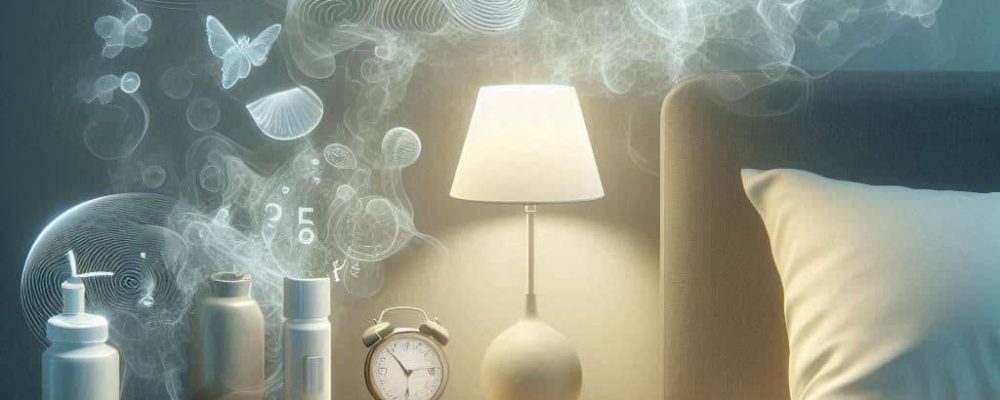Understanding Common Sleep Disorders
A sleep disorder is a condition that impairs sleep quality, duration, or timing, negatively impacting a person’s ability to function during the day. Sleep disorders can stem from medical, psychological, or lifestyle-related factors. Over 70 million Americans suffer from sleep disorders, with insomnia being the most prevalent sleep disorder, affecting 30%–40% of adults at some point in their lives.
The Most Common Sleep Disorders: Insomnia, Sleep Apnea, Restless Legs Syndrome, Narcolepsy, and REM Sleep Behavior Disorder
This section covers the most common sleep disorders, including insomnia, sleep apnea, restless legs syndrome, narcolepsy, and REM sleep behavior disorder. Each disorder has distinct causes, symptoms, and treatment options.
Causes of insomnia include stress, anxiety, and depression, poor sleep hygiene, caffeine and alcohol consumption before bedtime, and medical conditions.
Symptoms include difficulty falling asleep or waking up too early, daytime fatigue and reduced concentration, and mood disturbances.
Treatment options include cognitive behavioral therapy for insomnia (CBT-I), melatonin supplements, and improving sleep hygiene.
2. Sleep Apnea and Restless Legs Syndrome
Causes of sleep apnea include obesity and excess weight, smoking and alcohol consumption, and enlarged tonsils or nasal obstructions. Causes of RLS include iron deficiency, dopamine imbalance in the brain, and genetic predisposition. Symptoms include loud snoring, gasping for air during sleep, morning headaches, and daytime sleepiness.
Symptoms include tingling, itching, or crawling sensations in the legs, worsening discomfort in the evening or at night, and temporary relief by moving the legs.
Treatment options include continuous positive airway pressure (CPAP) therapy, oral appliances, and weight loss. Restless legs syndrome is a neurological condition causing unpleasant sensations in the legs with an urge to move them. Treatment options include iron supplements, dopamine agonists, stretching, and massage therapy.
3. Narcolepsy, REM Sleep Behavior Disorder, and Treatment Options
REM sleep behavior disorder causes people to physically act out their dreams, sometimes violently. Causes of RBD include neurodegenerative diseases, medication side effects, and brainstem dysfunction.
Symptoms include kicking, punching, or jumping during sleep, waking up confused or injured, and recalling vivid, action-filled dreams. Treatment options include melatonin and clonazepam, modifying the sleep environment, and medical evaluation for underlying conditions. Narcolepsy is a neurological disorder characterized by excessive daytime sleepiness (EDS) and sudden episodes of falling asleep during the day.
Causes of narcolepsy include deficiency of hypocretin, genetic and autoimmune factors. Symptoms include sudden sleep attacks, cataplexy, sleep paralysis, and hallucinations.
Treatment options include stimulant medications, scheduled naps, and antidepressants.
FAQs
How do I know if I have a sleep disorder?
If you experience persistent sleep disturbances, excessive daytime sleepiness, or trouble falling asleep, consult a sleep specialist for evaluation.
What is the most common sleep disorder?
Insomnia is the most common sleep disorder, affecting millions worldwide.
Can sleep disorders be cured?
Some sleep disorders, like insomnia and sleep apnea, can be managed or treated with lifestyle changes and medical interventions. Others, like narcolepsy, require ongoing treatment.
What happens if sleep disorders are left untreated?
Untreated sleep disorders can lead to heart disease, diabetes, depression, memory loss, and impaired cognitive function.
How can I improve my sleep quality?
- Stick to a consistent sleep schedule
- Avoid caffeine and electronics before bedtime
- Create a comfortable sleep environment
Final Thoughts
Sleep disorders can have a profound impact on health, productivity, and quality of life. If you experience persistent sleep problems, it’s crucial to seek medical advice and adopt lifestyle changes that promote better sleep. Proper diagnosis and treatment can significantly improve sleep quality and overall well-being.
Read About: What is Sleep Apnea?

